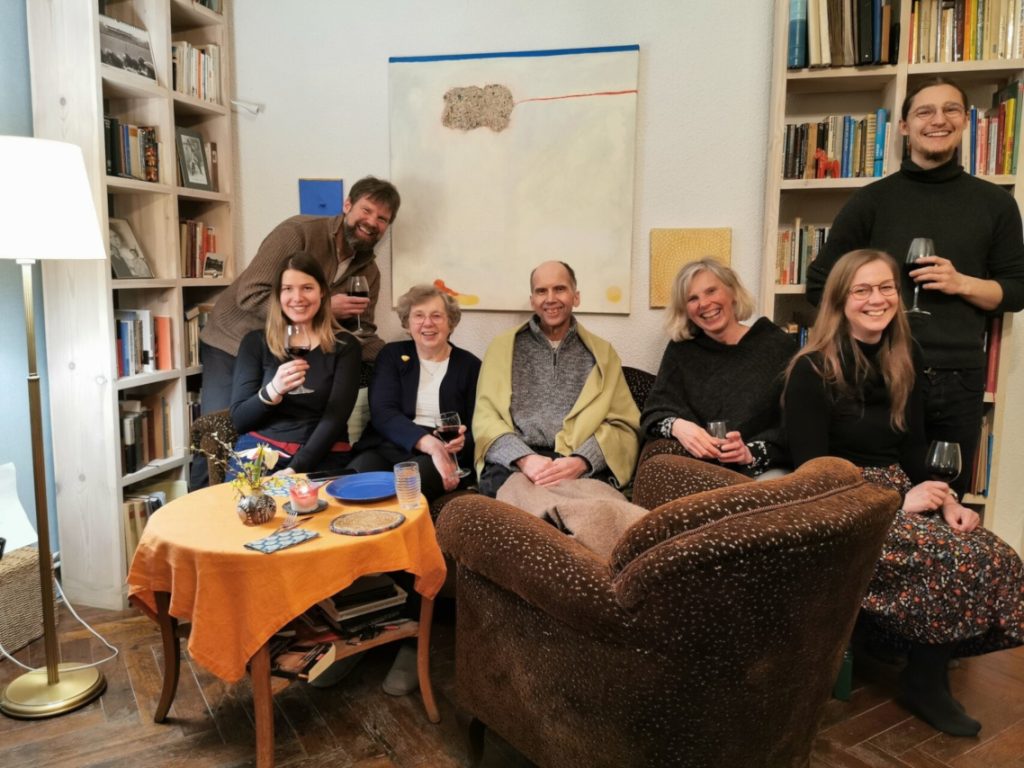Already last November, Mārtiņš began to not feel well. He was tired and had lost his appetite, and his long-awaited hernia repair surgery was postponed due to the Covid-19 pandemic. In January his stomach began to bulge and it became difficult for him to eat. Only in early March did the doctors discover the cause of his illness and diagnosed metastases in the stomach, but they were unable to precisely locate the primary tumour. In the oncology department at the Liepāja Hospital they began him on chemotherapy, and he continued oral chemotherapy in tablet form.
We were well aware of the fact that Mārtiņš’ illness was not curable. At the same time, the chemotherapy gave us hope that it might be able to prolong his life, even if only for a short time.
Mārtiņš was not ready to throw in the towel and simply give up. He completed the first cycle of chemotherapy, but it demanded very much of him. He had to force himself to eat, because he had no appetite and many foods no longer agreed with his stomach. One morning he stepped on the bathroom scale and was genuinely surprised that he had lost more than twenty kilograms. The amount of time he could spend on the telephone, working on the computer or talking with others became ever shorter, while his desire for rest and silence increased. He continued to take part in services with his congregation until his death.
Mārtiņš did not wish to endure another cycle of chemotherapy – he had neither the physical strength nor did he see much sense in continuing the treatment. Thankfully, we had in the meantime found doctors to support us and were provided with medical treatment at home, which alleviated our worries that he might have to needlessly suffer or be hospitalised indefinitely.
Our impression is that Mārtiņš had already been preparing to die for some time, in terms of practical issues (which he had taken care of as much as possible) but even more so internally – he placed his trust in God. A few weeks ago he told us (Gita, Tabita and Toms) about how cancer had marked his whole life: testicular cancer forty years ago, after which doctors predicted a short life expectancy, the heart-wrenching experience of watching Aija die of cancer, and now this cancer. But Mārtiņš emphasised that this experience had not been only negative and agonising; it had also let him better see the values in life and had given him more clarity regarding issues of faith.
We are grateful that, in the short time he had before he lost his strength, we were able to be together with Mārtiņš in conversation, prayer and silence. On many evenings Aija’s son, Ivars, also stopped by to be close to Mārtiņš. Celebrating Easter together with the family was a special gift for all of us.
Although we knew Mārtiņš did not have much time left, his death on Friday afternoon was nevertheless sudden. His condition had significantly worsened the previous night. His sister, Tabita, was with him.
Mārtiņš’ church, the Church of the Cross in Liepāja, will be open to mourners every day this week (April 25–30) from 16:00 to 18:00.
The funeral will take place on Saturday, May 1. Significantly, this is also the date of Mārtiņš and Aija’s wedding anniversary. The Church of the Cross will be open on Saturday morning (May 1) from 09:30 until 13:30 for all who wish to pay their respects and say farewell. After that, the coffin and flowers will be taken to the Limbiķi Cemetery near Grobiņa, where the burial service will take place. Nearby is the “Iļģi” social care centre, whose residents Mārtiņš had ministered to for many years. For his final resting place, Mārtiņš chose the farthest, abandoned section of the cemetery, where deceased “Iļģi” residents are buried. The last project he charged us with is to erect a monument there. It will depict Jesus with open arms, and the inscription will read: “Come to me, all you who are weary and burdened, and I will give you rest.” (Mat. 11:28)
Gita, Tabita un Toms
